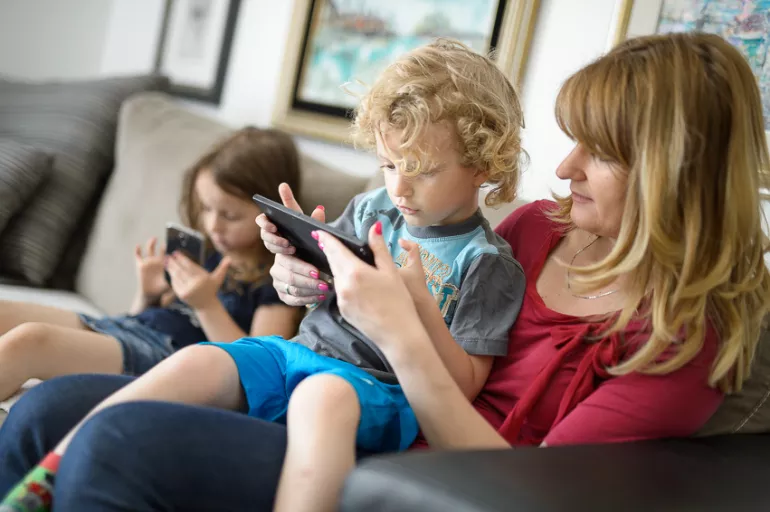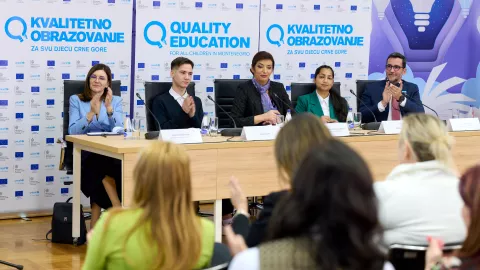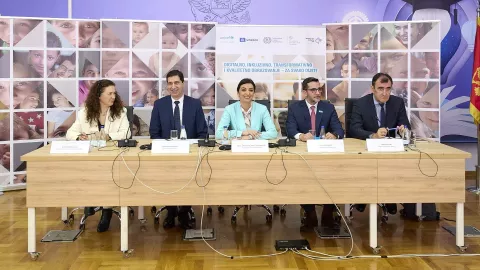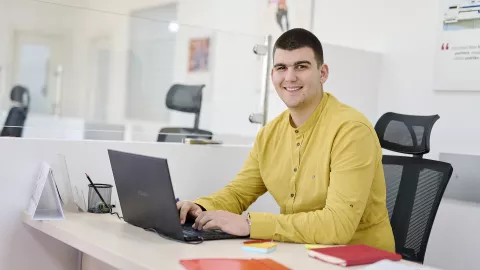Let’s choose what we watch, read and listen to
On the occasion of Global Media Literacy Week, UNICEF’s young reporters are calling on their peers to choose what they watch, read and listen to, and are inviting parents to talk to their children about it regularly

- Available in:
- Crnogorski
- English
- Shqip
PODGORICA, 30 October 2022 – The media is neither good nor bad, and its influence depends on how we use it. So let’s choose what we watch, read and listen to – this is the message of UNICEF’s young reporters at the end of Global Media and Information Literacy Week, which is celebrated worldwide from 24 to 31 October.
“Not every content offered to us is worthy of attention,” Miljana Stankovic, a UNICEF young reporter, said.
For Anel Memic, a UNICEF young reporter, media literacy is crucial for every child. “Without media literacy, we are left at the mercy of those who control the media, but with it, the control is in our hands,” Memic said.
Through a TikTok video, UNICEF’s young reporters made it possible for the voices of Montenegrin young people to be heard on this topic during Global Media and Information Literacy Week. Video materials are available at the following links: link 1 and link 2.
Data from research conducted by Ipsos with the support of UNICEF and the UK Embassy in 2021 demonstrates the importance of media literacy in 21st-century life. Namely, one in three citizens of Montenegro believe in conspiracy theories and misinformation about coronavirus, while one in five believe in conspiracy theories and misinformation about vaccines. A consequence of the influence of such belief in misinformation and conspiracy theories can be behaviour that puts one’s own life and the lives of others in danger. Seven out of ten citizens of Montenegro recognize media literacy as the most effective way to combat misinformation.
Media literacy develops throughout one’s life, and this process must start from early childhood. Regardless of how (in)competent parents may feel about new technologies, regular conversations with children about all media content help them develop quality criteria by which they choose the media content they watch. Also, these conversations help them learn to constantly analyse critically, to ask themselves who made certain media content, for whom, in what way and for what purpose. Parents can check the accuracy of information with their children by comparing what different sources say about a certain topic, including experts and relevant institutions in Montenegro and around the world.
In December 2021, only one in two parents in Montenegro reported that they talked to their children about the media content they watched and limited their choice of media content and the time they spend daily in front of the screen.
Media contacts
About UNICEF
UNICEF promotes the rights and wellbeing of every child, in everything we do. Together with our partners, we work in 190 countries and territories to translate that commitment into practical action, focusing special effort on reaching the most vulnerable and excluded children, to the benefit of all children, everywhere.
For more information about UNICEF and its work for children, visit www.unicef.org.




